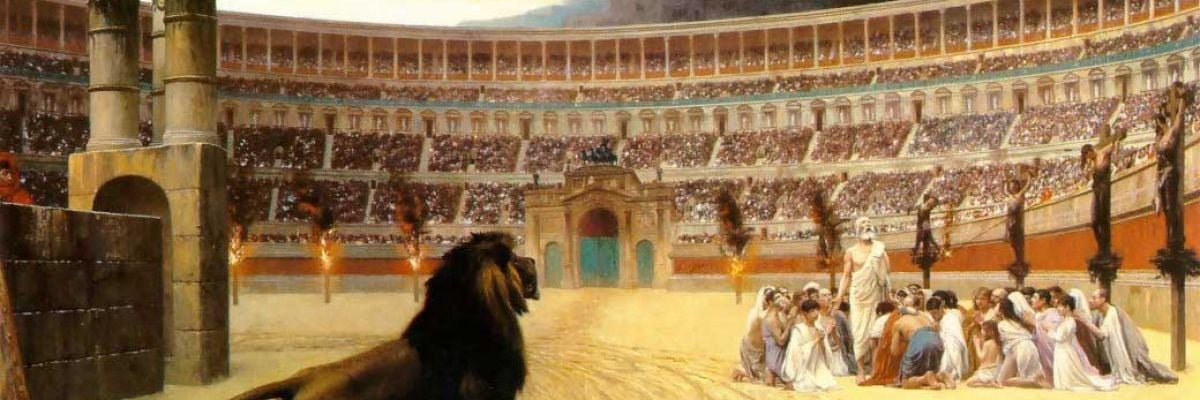
Nothing’s better than when an enemy begrudgingly admits that while he hates your cause, he admires the character of those who represent it. In the first centuries of the Church, persecution was the norm and bloody campaigns led by Roman emperors such as Nero or Domitian sent many Christians to painful deaths.
I really enjoy reading early Christian history because it always challenges me to be holy in the face of obstacles to our faith. Even the enemies of the early church couldn’t deny its spirit-led holiness.
The Greek satirist Lucian of Samosata wrote in his second century work The Death of Peregrinnus that Christians were gullible fools who were easily taken in by con artists. However, veiled within his criticism is a tacit admission of the extreme generosity present in the early Church. Lucian writes in chapter 13 that Christians:
scorn all possessions without distinction and treat them as community property. They accept such things on faith alone, without any evidence. So if a fraudulent and cunning person who knows how to take advantage of a situation comes among them, he can make himself rich in a short time.
And why do Christians act this way? Lucian further explains:
Having convinced themselves that they are immortal and will live forever, the poor wretches despise death and most willingly give themselves to it. Moreover, that first lawgiver of theirs persuaded them that they are all brothers the moment they transgress and deny the Greek gods and begin worshiping that crucified sophist and living by his laws.
Pliny the Younger was the governor of Bithynia and in a correspondence dated to the years 111-113 A.D. with Emperor Trajan, we find a small section on how to handle Christians. In one of his last letters to Trajan he says Christians:
were accustomed to meet on a fixed day before dawn and sing responsively a hymn to Christ as to a god, and to bind themselves by oath, not to some crime, but not to commit fraud, theft, or adultery, not falsify their trust, nor to refuse to return a trust when called upon to do so. When this was over, it was their custom to depart and to assemble again to partake of food–but ordinary and innocent food. Even this, they affirmed, they had ceased to do after my edict by which, in accordance with your instructions, I had forbidden political associations. Accordingly, I judged it all the more necessary to find out what the truth was by torturing two female slaves who were called deaconesses. But I discovered nothing else but depraved, excessive superstition.
Pliny’s reply is revealing because he admits that Christians were not involved in gross immorality or rebellion against the empire, the latter of which was the reason for “forbidding political associations.” Instead, they simply worshipped Christ, took an oath to be moral and partook of “ordinary food.” Of course, the early Christians thought this food, or the Eucharist, was anything but ordinary. At the same time of the Pliny correspondence, St. Ignatius of Antioch wrote about heretics who:
abstain from the Eucharist and from prayer because they do not confess that the Eucharist is the flesh of our Savior Jesus Christ, flesh which suffered for our sins and which that Father, in his goodness, raised up again. They who deny the gift of God are perishing in their disputes. (Letter to the Smyrnaeans 6:2–7:1)
The word martyr literally means “witness” and I pray we all can have the courage to be charitable witnesses of the faith like these first Christians. Of course, such an act requires an amazing amount of grace so clinging to Christ, especially in the Eucharist, is a good place to start.



